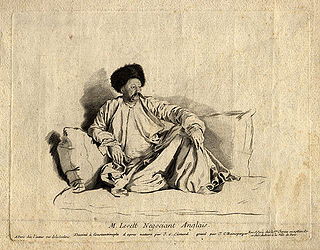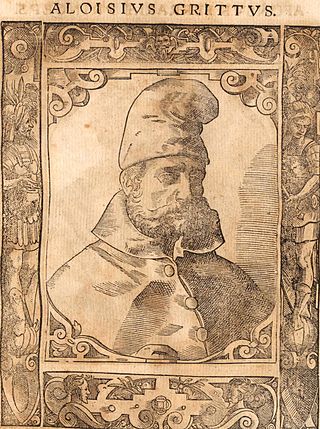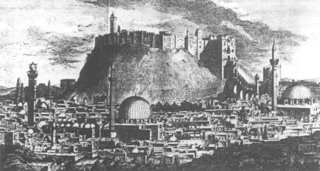Related Research Articles

The Latin Church in the Middle East represents members of the Latin Church of the Catholic Church in the Middle East, notably in Turkey and the Levant. Latin Catholics are subject to the Latin Patriarchate of Jerusalem and employ the Latin liturgical rites, in contrast to Eastern Catholics who fall under their respective church's patriarchs and employ distinct Eastern liturgical rites, while being in full communion with the worldwide Catholic Church. Latin Catholics in the Middle East are often of European descent.

The Burji or Circassian Mamluk dynasty of Circassian origin, ruled Egypt from 1382 until 1517, during the Mamluk Sultanate. The Circassian community in Cairo especially flourished during this time. Political power-plays often became important in designating a new sultan. During this time Mamluks fought Timur and conquered Cyprus. Constant bickering may have contributed to the ability of the Ottomans to challenge them. Their name means 'of the tower', referring to them ruling from the Citadel east of Cairo.

The Levant Company was an English chartered company formed in 1592. Elizabeth I of England approved its initial charter on 11 September 1592 when the Venice Company (1583) and the Turkey Company (1581) merged, because their charters had expired, as she was eager to maintain trade and political alliances with the Ottoman Empire. Its initial charter was good for seven years and was granted to Edward Osborne, Richard Staper, Thomas Smith and William Garret with the purpose of regulating English trade with the Ottoman Empire and the Levant. The company remained in continuous existence until being superseded in 1825. A member of the company was known as a Turkey Merchant.

Andrea Gritti was the Doge of the Venetian Republic from 1523 to 1538, following a distinguished diplomatic and military career. He started out as a successful merchant in Constantinople and transitioned into the position of Bailo, a diplomatic role. He was arrested for espionage but was spared execution thanks to his good relationship with the Ottoman vizier. After being freed from imprisonment, he returned to Venice and began his political career. When the War of the League of Cambrai broke out, despite his lack of experience, he was given a leadership role in the Venetian military, where he excelled. After the war, he was elected Doge, and he held that post until his death.

A bailo, also spelled baylo was a diplomat who oversaw the affairs of the Republic of Venice in Constantinople, the capital of the Ottoman Empire, and was a permanent fixture in the city around 1454.

A consul is an official representative of the government of one state in the territory of another, normally acting to assist and protect the citizens of the consul's own country, as well as to facilitate trade and friendship between the people of the two countries.

Relazioni were the final reports presented by Venetian ambassadors of their service in foreign states. Relazioni contained descriptions of the current political, military, economic, and social conditions of the country visited. Relazioni are important to historians for recording the development of diplomacy in early modern Europe.

An Ahdname, achtiname or ahidnâme is a type of Ottoman charter commonly referred to as a capitulation. During the early modern period, the Ottoman Empire called it an Ahidname-i-Humayun or an imperial pledge and the Ahdname functioned as an official agreement between the Empire and various European states.

The Fourth Ottoman–Venetian War, also known as the War of Cyprus was fought between 1570 and 1573. It was waged between the Ottoman Empire and the Republic of Venice, the latter joined by the Holy League, a coalition of Christian states formed under the auspices of the Pope, which included Spain, the Republic of Genoa, the Duchy of Savoy, the Knights Hospitaller, the Grand Duchy of Tuscany, and other Italian states.

Dutch–Turkish relations are the interstate relations between the Netherlands and Turkey. The diplomatic relations widely encompass and span four centuries, beginning in 1612. The first Turkish representative in the Netherlands started activities in 1859.

Alvise Gritti, whose first name may also be spelled Aloisio, Lodovico, Ludovico, Luigi or Louis, was a Venetian politician. He was influential in the Hungarian Kingdom under the reign of King John I of Hungary. He was also a minister of the Ottoman sultan, and regent of Hungary from 1530 to 1534. He was the natural son of Andrea Gritti, the Venetian Bailo of Constantinople during the reign of Sultan Bayezid II and who later became the Doge of Venice in 1523.
In countries outside of its borders, a foreign power often has extraterritorial rights over its official representation. If such concessions are obtained, they are often justified as protection of the foreign religion such as the ahdname or capitulations granted by the Ottoman Sultan to commercial Diasporas residing in the Ottoman Empire. The Sultan did not see this agreement as a bilateral agreement between equals, but merely as acknowledging the nation of foreigners living within his territory and offering them privileges similar to those given to non-Ottoman subjects. However, the European states viewed the ahdname as formal and official and therefore had difficulty enforcing the privileges to their satisfaction on many occasions.

The Massacre of Aleppo , often referred to simply as The Events, was a riot perpetrated by Muslim residents of Aleppo, largely from the eastern quarters of the city, against Christian residents, largely located in the northern suburbs of Judayde (Jdeideh) and Salibeh. The riot began on the evening of October 17, 1850, and ended two days later on October 19, 1850. The riot resulted in numerous deaths, including that of Peter VII Jarweh, the Syriac Catholic Patriarch.
Bailo or baylo is a Venetian title that derives from the Latin term baiulus, meaning "porter, bearer". In English, it may be translated bailiff, or otherwise rendered as bailey, baili, bailie, bailli or baillie. The office of a bailo is a bailaggio. The term was transliterated into Greek as μπαΐουλος (baioulos), but Nicephorus Gregoras translated it ἐπίτροπος or ἔφορος.
Andrea Biagio Badoer was a Venetian administrator and diplomat.
Levantines in Turkey or Turkish Levantines, refers to the descendants of Europeans who settled in the coastal cities of the Ottoman Empire to trade, especially after the Tanzimat Era. Their estimated population today is around 1,000. They mainly reside in Istanbul, İzmir and Mersin. Anatolian Muslims called Levantines Frenk and Sweet Water Freng in addition to Levanten.
The Swedish Levant Company was a Swedish chartered company founded on 20 February 1738 with the exclusive right to trade in the Levant for a period of ten years.
The Levant Consular Service was a specialized British diplomatic organization centered in the Levant. From 1877 to 1916, it trained 88 Britons in consular service. The diplomatic arm spanned from the Balkans to China, mainly centering around the Ottoman Empire.
Thomas Backhouse Sandwith (1831-1900) was a member of the British consular service in the Levant. He was a Vice Consul in Syria 1857 to 1865, and then Vice Consul in Cyprus between 1865 and 1870. He was Consul in Chania, Crete from 1870 to 1885, in Tunis 1885 to 1888 and Consul-General in Odessa 1888 to 1891.

Safavid-Venetian relations — relations between the Safavid state and the Republic of Venice.
References
- ↑ Goffman & Aksan 2007 , p. 63
- ↑ Mattingly 1963 , pp. 64–67
- ↑ Goffman 2002 , p. 144
- ↑ Steensgaard 1967
- ↑ Goffman 2002 , pp. 228–229
- 1 2 Steensgaard 1967 , p. 25
- ↑ Dursteler 2001 , p. 2
- ↑ Dursteler 2001
- ↑ Dursteler 2001 , p. 5
- ↑ Steensgaard 1967 , p. 26
- ↑ Steensgaard 1967 , p. 27
- ↑ Eldem 1999 , p. 265
- ↑ Eldem 1999 , p. 67
- ↑ Brewer 2002 , pp. 98–99
- ↑ Brewer 2002 , p. 98
- ↑ De Groot 1978 , pp. 88, 97
- ↑ Steensgaard 1967 , pp. 31–33
- ↑ De Groot 1978 , p. 221
- ↑ Steensgaard 1967 , pp. 34–36
- ↑ Steensgaard 1967 , p. 50